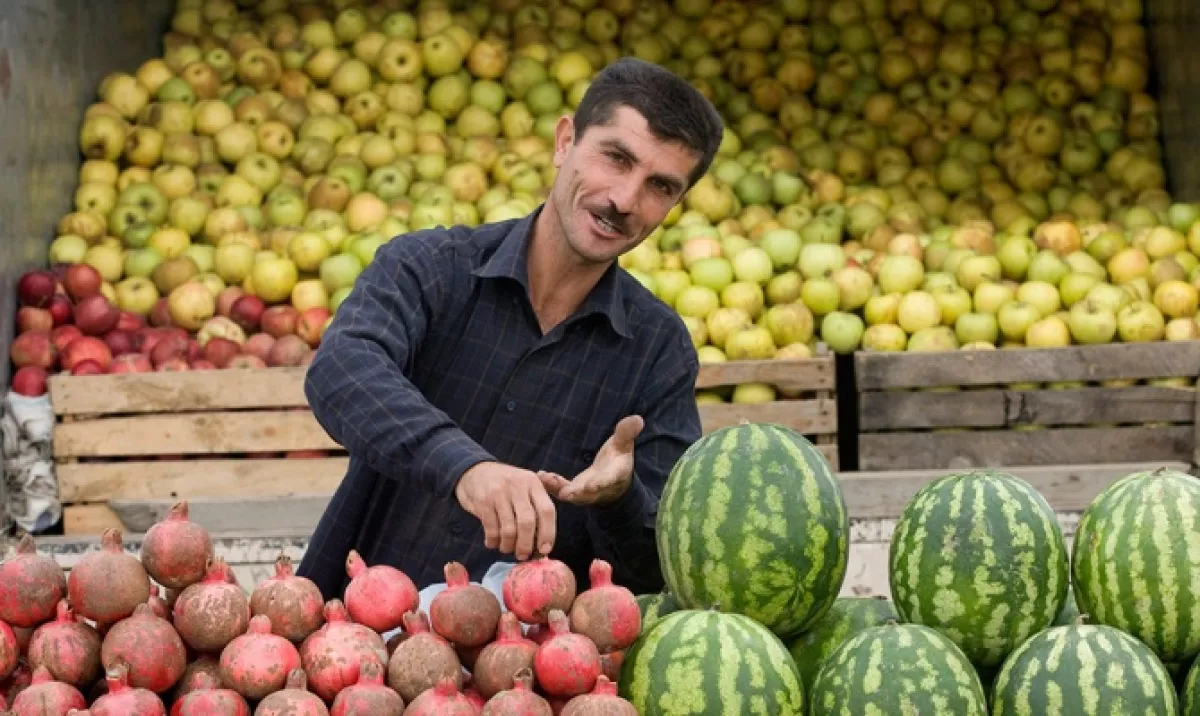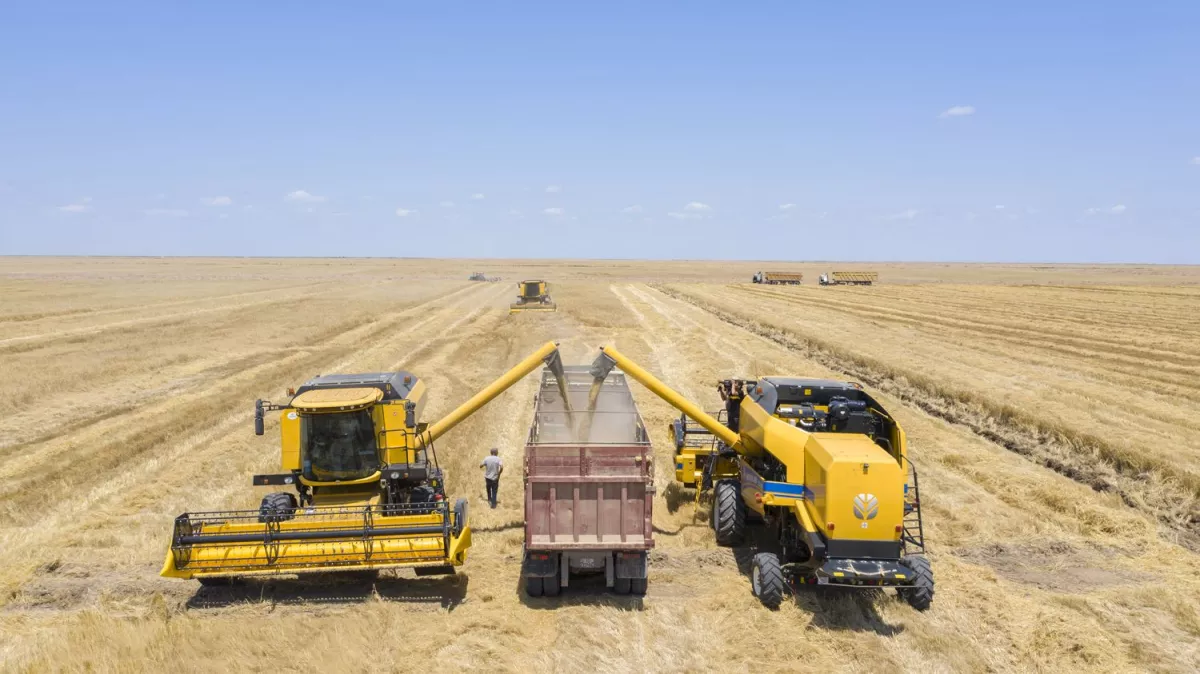Achievements of the agricultural sector in international markets Made in Azerbaijan
According to data from the Center for Analysis of Economic Reforms and Communication (CAERC), published recently in the December issue of the Export Review, Azerbaijan's agricultural and agro-industrial exports for January-November 2024 have surged by nearly 16%, reaching a record level that far outpaces trends in recent years.
In recent years, Azerbaijan has implemented successful reforms aimed at boosting agricultural production and processing, with notable progress in diversifying the markets for food exports. These efforts are supported by the Ministry of Economy, which promotes the "Made in Azerbaijan" brand, advertises agricultural products in international markets, and offers various incentives to exporters.
Over the past decade, Azerbaijan has made significant strides in improving agricultural productivity. Nearly fifty agro-parks have been established, including large grain-growing, greenhouse, and orchard farms. In some of these clusters, production has been paired with raw material processing and packaging of finished products. Projects aimed at digitizing the agricultural sector are also being implemented, alongside the establishment of industry clusters, reforms to the agricultural machinery leasing system, and ensuring transparency in subsidy allocation.
In recent years, water-efficient irrigation systems have been actively introduced, and in the near future, the area of agricultural land with modern irrigation solutions is expected to increase from 50,000 to 200,000 hectares. All these measures are enhancing competitiveness and boosting the volume of local agricultural products—both fresh and processed—on international markets.
Notably,in 2024, the agricultural and processing sectors of Azerbaijan have increased exports to nearly one billion U.S. dollars. This success demonstrates that Azerbaijan has managed to strengthen the export-oriented component of its domestic agro-industrial complex without posing significant risks to food security. Equally important, these steps are being taken with consideration for potential inflationary risks.
According to preliminary estimates from the CAERC, Azerbaijan exported agricultural and agro-industrial products worth $988.9 million in the first 11 months of 2024, marking a 15.9% increase compared to the same period last year. Furthermore, when evaluating exports separately in the segment of processed food and industrial products (which accounted for $287.3 million), there was an unprecedented growth of 58.3%.
These figures clearly surpass the achievements of recent years and can be considered a record for the entire period of the country’s independence. Although the growth rate of agricultural exports was somewhat more modest last year (6.2%), overall, agricultural producers have managed to sustain the impact of the efforts made in recent years to reorient Azerbaijan's agro-industrial complex towards international markets.

Notably, the leaders in the growth of agricultural exports are technical crops, such as tobacco and cotton. According to data from Azerbaijan's Ministry of Agriculture, from January to November this year, 7,254 tons of tobacco raw material, worth nearly $22.3 million, were exported to foreign markets. This represents a 3.2-fold increase in export volume and a 4.5-fold increase in value compared to the same period last year.
Overall, tobacco production in the country has grown by 34% this year, which not only meets the needs of local tobacco factories but also allows for the export of domestic raw materials to Moldova, Russia, the UAE, Georgia, Türkiye, Austria, Bulgaria, Italy, Lithuania, Poland, and Greece. A similar trend is seen in cotton fiber exports: in total, cotton raw material exports for the first 11 months amounted to 112,597 tons, an increase of 1.5 times, and in value terms ($169 million), they grew by 1.8 times.
Other sectors of Azerbaijan's agro-industrial exports have also shown strong growth. For example, in the first 11 months of the year, 1,597 tons of dried fruits were exported, reflecting a 37.8% increase in shipments. During the same period, 29,359 tons of pomegranates were exported, marking a 16.2% rise compared to last year. Additionally, from January to October, 118,922 tons of tomatoes, worth $141.97 million, were exported, reflecting a 12.6% increase in value terms. Over the same 10-month period, 622 tons of tea were exported, with a growth of more than 6% in volume.
Azerbaijani farmers also exported 94,526 tons of apples, pears, and quinces, which is 3.2% more than in the same period last year. However, the volume of fruit exports could have been significantly higher if not for the decline in the Russian ruble against the U.S. dollar since spring. Under established rules, Russian importers pay for fruit in rubles and in installments as the goods are sold. The sharp depreciation of the ruble reduces Azerbaijani exporters' revenue in dollar terms. Additionally, Azerbaijani suppliers are unable to raise wholesale prices in rubles significantly due to the risk of losing competitiveness. As a result, they have been forced to reduce exports under the current circumstances.

To this day, the main markets for Azerbaijani agricultural products remain Russia, Belarus, Kazakhstan, and other post-Soviet countries. However, Azerbaijani food and fresh agricultural products are gradually entering new international markets. As part of its trade diversification policy, over the past seven years, Azerbaijan's Ministry of Economy and its relevant structural agencies – the Export and Investment Promotion Agency (AZPROMO) and the Small and Medium Business Development Agency (KOBİA) – as well as the Ministry of Foreign Affairs' trade missions, have organized various presentations, seminars, and facilitated the participation of local agricultural companies and SMEs in international exhibitions and forums. Agro-exporters also receive consulting services to explore market opportunities and international certification procedures, while promoting the "Made in Azerbaijan" brand. To streamline these efforts, nearly two dozen trade and wine houses have been established in key markets. In addition to the post-Soviet countries, key markets today include China, the Eastern Europe region, the Persian Gulf states, the Middle East, and North Africa.
Recent reforms have enabled Azerbaijani food processing and manufacturing enterprises to align with international standards, improving safety and quality indicators for the products they produce. These changes have created favorable conditions for expanding the export of Azerbaijan’s agro-industrial products, particularly those in high-risk categories.
For example, due to increased control by the Azerbaijan Food Safety Agency (AFSA) in the aquaculture sector, the EU granted approval for the export of sturgeon caviar produced in aquaculture conditions for the first time last year. An agreement has also been reached with the European Union on the export of hides and wool from agricultural animals, and simplified export procedures for hazelnuts have been approved. Additionally, the export of local horses to Kazakhstan has resumed, and approvals have been granted for the export of eggs to Russia and poultry meat and other poultry products to China.








